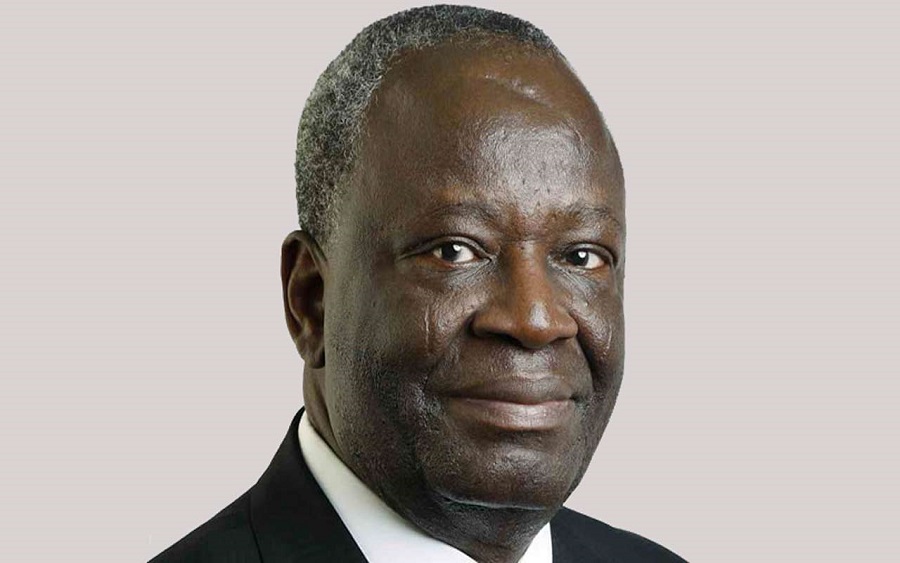“Our estimate of personal merit, is relative to the common faculties of mankind”
– Edward Gibbon.
Every age has its manners, and its heroes, anti-heroes and villains. In ours, the anti-heroes and villains preponderate while the heroes are becoming rarer and far between. At a time when good taste and exquisite manners are desperately lacking among both men and women, we must beam the diligent searchlights of inquiry into the lives and times of surviving dignitaries whose conducts can be held up as having enriched our age and made the difference between decadence and virtue in our societies.
Very few in every age or generation can rise to positions of prominence in their careers to be considered of inestimable value to their people and country. Professor Ibrahim Agboola Gambari, CFR, is one such personality who has attained that lofty and enviable stature.
His accomplishments straddle so many vistas that his story can be likened to the proverbial elephant and the six blind men called upon to describe it. Each held on to a piece of the mighty beast and proclaimed what he felt as being the definitive description of the elephant. Individually each was wrong, but taken together, their understanding of the elephant met the approximation of that mighty creature.
Describing Professor Gambari as an intellectual, a veritable man of letters, an erudite scholar, a quintessential diplomat, a consummate administrator and statesman, a teacher and mentor, an accomplished orator or an international civil servant, might all amount to clichés that we might hold on to, like the six blind men, to approximate the nature and character of the great man. The fact that he is all of these, makes him one of the most enigmatic, intriguing, unique, interesting and important personalities that Nigeria has produced in generations.
He is truly the product of his times and circumstances, being a prince of the reigning house of Amir Alimi of Ilorin Emirate, and a scion of a long-established Islamic dynasty in Northern Nigeria. Despite being born with the proverbial silver spoon in his mouth, Professor Gambari remained all his life a humble man of ordinary means and disposition. He cannot by any stretch of the imagination be said to have benefitted unfairly from the regime of preferences and dispensation of largesse that has been enthroned as part of our value system and governance culture for some time now.
Ibrahim Agboola Gambari was born in Ilorin, Kwara State, on November 24 , 1944, during the climax of the convulsions of the Second World War in Europe and North Africa. Nigerians and other Africans were conscripted to serve in various arenas of this war, including in faraway Burma and France. Colonialism and the early years of the nationalist struggle in Nigeria must have contributed to the shaping of his “world view” as it were, during his formative years.
His passionate attachment to the “African Renaissance” and commitment to Nigeria’s unity and greatness in his mature years, testify to his larger appreciation of his environment and heritage. Spending most of his life outside his paternal precincts of Ilorin may have provided Ibrahim Gambari with the detached and cosmopolitan view of things uncluttered by parochialism and endemic ethnic chauvinism that have beclouded the judgment of so many Nigerians.
After attending the Provincial Secondary School in Ilorin, he went to the famous Kings College, Lagos in the southwest of Nigeria, a link that he maintains to this day by making that city his second home after Ilorin. As many privileged individuals in his generation did, he had the good fortune to attend university in the United Kingdom and America, where he obtained his various degrees with distinction and accolades. His memorable teaching career started in the United States but reached its zenith at the famous Ahmadu Bello University, Zaria, where he lectured in international relations and mentored countless members of the Nigerian intelligentsia and bureaucratic establishment.
Professor Gambari’s academic record alone is as lengthy as the entire curriculum vitae of several educated Nigerians put together. He was appointed visiting lecturer to various universities including Johns Hopkins University, Georgetown University and Howard University as well as a research fellow at the Brookings Institution in Washington, D.C., and the Rockefeller Centre in Bellagio, Italy. He gave countless lectures in numerous universities and distinguished circles in many countries around the world, thereby leaving his mental footprints and the traces of his genius in different lands and climes.
His academic prowess remains unmatched and his achievements in that field are legendary such that he has become a reference point in many universities. His books are much sought after and his academic articles have become literally classics both in substance and style. He is one of the few African intellectuals and practitioners of foreign policy to expound a theory that has become relevant and a fixture in diplomacy that became known as the “Concentric Circle” theory. His appointment as the pioneer Chancellor of Kwara State University and Pro-Chancellor of Bayero University, Kano, signified the pinnacle of respectability that he attained in the world of academics.
He rose to become what he is today by the dint of hard work and strenuous mental exertion in the daunting and competitive arena of the Nigerian academia as far back as the 1970s. He wrote books and learned articles of such high standards that they became reference materials in the fields of political science and international relations. His lectures were equally much sought after as research materials. There are very few scholarly works on contemporary politics and international relations that do not contain references to Professor Gambari’s writings either in their footnotes or bibliography.
His contributions to intellectual refinement in political science and diplomacy are legendary both in the hallowed halls of several African universities and other continents. His international reputation was personified by his contributions to the United Nations, the African Union and the Commonwealth in various high-level capacities, while his standing was elevated beyond reproach by co-authoring the international report on multilateralism and global governance with the late Madeline Albright, former United States Secretary of State. He is one of the few Africans whose name was prefixed to an international commission in the form of the Albright-Gambari Commission on Global Security, Justice and Governance that was established under the auspices of the Hague Institute for Global Justice and the Stimson Centre to examine certain emerging global challenges.
His public career and service to humanity took off with brilliance and lustre like his academic career. He became the Director-General of the Nigerian Institute of International Affairs (NIIA) where he injected dynamism and brought respectability to that venerable establishment. From there he was appointed Minister of External Affairs by Major-General Muhammadu Buhari, GCFR, during his short-lived military government in 1984-85. He was thereafter appointed as Nigeria’s number one diplomat at the United Nations in New York, as Ambassador and Permanent Representative.
He served in that capacity from 1990 to 1999, thereby setting the record as the longest-serving Permanent Representative working with five different heads of state and presidents. This record was nearly matched by another illustrious Nigerian, Professor U. Joy Ogwu, who served in New York as Permanent Representative from 2008 to 2016 and attended to four presidents.
As Permanent Representative, Professor Gambari’s career was no doubt made memorable and of historical significance by his presiding over the work of the UN’s Special Committee against Apartheid which he chaired for four years from 1990 to 1994. The lasting legacy that he left behind in that Committee still reverberates with glory for Nigeria.
Professor Gambari’s dazzling career in the service of humanity spanned the administration of five Secretaries-General of the United Nations and several Presidents in Nigeria. His usefulness became confirmed with his appointment as president of UNICEF, the UN’s humanitarian agency dedicated to the welfare of children in 1999. That same year until 2005, he was appointed as the first Under Secretary-General for Political Affairs and Special Adviser on African Affairs under Kofi Annan, former UN Secretary-General. He was concurrently made the Resident Special Representative of the Secretary-General and Head of the United Nations Mission in Angola in 2002-2003.
Professor Gambari’s familiarity with Southern Africa and unbroken engagement with the liberation struggles in Africa made him a rare gem in the decolonisation process in the continent. His virtues were recognised and rewarded by many other appointments and responsibilities. He served on the Panel of Eminent Persons of the African Peer Review Mechanism (APRM) and helped frame the structures of the New Partnership for Africa’s Development (NEPAD) alongside other African leaders.
His contributions towards democratic governance and stability were also demonstrated by his appointment as the Special Envoy to Zambia as well as Special Envoy to Democratic Stability and Elections by the then Commonwealth Secretary-General, Patricia Scotland, QC. His uncompromising integrity also led to his appointment by the present Secretary-General into the Panel of Independent Eminent Experts on the Implementation of the Durban Declaration and Programme of Action against Racism, Racial Discrimination and Xenophobia.
He also served in the distinguished capacity of the Secretary-General’s Special Envoy on Cyprus, Zimbabwe and Myanmar in 2007, thereby helping to bring about settlement to important diplomatic complications. On account of his dexterous handling of sensitive issues and his ability in dealing with complex problems with delicacy and finesse, he was given the commission of Good Offices to Myanmar in 2007 and then tasked with a similar assignment in Iraq, to deputise for the Secretary-General and lend his vast experience and credibility to settling sensitive issues.
The international appointments of Professor Gambari remain unmatched until this day for an African and a Black man. His transcendental capacity and judgment coupled with the integrity of his life, made it impossible to overlook his virtues and deny him recognition on the basis of his origin or race. He served with flying colours in many of the capacities to which he was appointed and acquitted himself admirably in the extremely competitive and relentlessly adversarial world of international politics and diplomacy.
He ended up being appointed as the Joint Special Representative of the Secretary-General and Chairperson of the African Union Commission/Head of the UN and AU Hybrid Mission (UNAMID) in Darfur, Sudan, from 2010 to 2012. UNAMID became the largest and most important peacekeeping mission of the United Nations, and its operations confirmed the leadership role of Nigeria in Africa, which today has been forgotten by many Nigerians.
In 2014, he became a delegate to the National Conference that was convened by the then President, Goodluck Ebele Jonathan, GCFR, to discuss the state of the Nigerian nation. In his most recent service to his country as Chief of Staff to President Muhammadu Buhari, Professor Gambari proved to be a ballast in the ship of state in stormy weather thereby bringing stability and focus to that beleaguered administration. His use of extensive contacts that he developed over several decades of service nationally and internationally was an asset that proved worth its weight in gold to the administration.
His sense of duty and high conception of loyalty to his principal set him apart from the motley collection of underlings and self-serving officials who passed through the corridors of power without distinction or leaving any mark of their presence, and whose absence will never be missed. In his case, he was a stalwart who stood guard on sentry duty, protecting the integrity of his charge and principal, while seeing to it that governance was not debased to the point of it becoming a transactional undertaking that merely gratified the inveterate propensity of those desirous only of acquiring wealth and power for their own sake.
Professor Ibrahim Agboola Gambari transcended the threshold of personal interest and attained the lofty heights of impersonal commitment to the cause of advancing the collective interest and outlook as called for by his dignity and stature. While he remains in restful contentment offered by the knowledge of service rendered and duty fulfilled, it is our hope that he will favour us with the writing of his memoirs and reminiscences about life and its vicissitudes of adversity and fortune, to regale and instruct us and future generations on how greatness is attained, and what being a quintessential citizen of Nigeria entails.
While he spends his moments of calm and reflection in attending to the growth of his Savannah Centre for Diplomacy, Democracy and Development (SCDDD), he may also relish the comfort provided by family and friends, and enjoy the numerous recognitions and honours bestowed on him for services rendered to both his country and humanity that are too numerous to mention in such a brief profiling of a life well fulfilled.

 Join Daily Trust WhatsApp Community For Quick Access To News and Happenings Around You.
Join Daily Trust WhatsApp Community For Quick Access To News and Happenings Around You.


